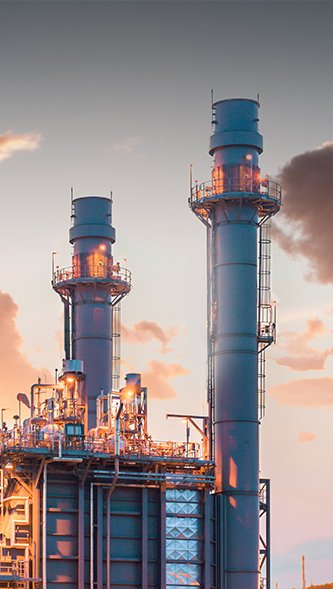BENEFIT FROM OUR KNOW-HOW, IT’S HERE FOR YOU
Metering Services Group has dozens of qualified specialists with experience in the energy field, the supply of systems for measuring and managing energy, and the development of hardware and software.

Metering Services Group has dozens of qualified specialists with experience in the energy field, the supply of systems for measuring and managing energy, and the development of hardware and software.

Chemical and petrochemical, automotive, industries related to mineralogical processes (e.g. brickyards, ceramics, bituminous mixture coating plants, processing of plastics and metals (metallurgical processes))

A comprehensive portfolio of products and solutions for efficient energy management and the governing of energy flows, e.g. compliance with designated capacities, and the monitoring of energy from supply quality to the comprehensive energy management system. Products are focused on the analysis of measured energy data information and connecting it with production data (assortment, quantity) by using expert knowledge of measurement parameters and monitoring technologies.
Return on investment for such solutions usually range from 6 months to 2 years.
Among other professional activities in high demand these days, services we’ve supplied include:
Metering Services Group offers customers a wide range of products and services, including expert know-how. Great emphasis is placed on providing support and service of solutions we’ve provided.
Reducing energy consumption and seeking further savings. Reducing fixed payments for reserved energy by optimizing designated energy consumption diagrams.
Complete, customized energy management provision, from initial engineering and design, through the supply of measuring instruments, equipment for data collection and communication to a reading center, with visualization tailored to the customer. A natural gas (or electricity) regulator is usually part of energy management, along with the measuring of electricity supply quality from the distribution network.
The most extensive element is the monitoring of secondary consumption of electricity, natural gas, compressed air, heating/cooling and water. Energy Management manages the scaling of this data from meters according to professions, centers, establishments, etc.
Communication infrastructure for data transmission can be part of the provision (optical network, structured cabling, wireless network) or the customer's existing infrastructure, or a combination of both.
The system comes with a standardized interface for data exchange with other information systems, most often production or economic systems.
A sophisticated system for energy management is an absolutely essential prerequisite for efficient energy management. The core of the solution is the analysis of measured data, whether it be individual measurements or partial and total balances. The system has tools for automated data control, especially for the immediate identification of abnormal or error conditions.
e-PointHES, a robust head-end system, is a distributed solution that provides the collection and management of measured data using various communication channels (GSM/GPRS, NB-IoT, LoRa,
Savings as the main benefit, aka, having the flow of energy under control.
A system of data collection from metering instruments and technological equipment that ensures data processing and its presentation to the user.
Adherence to the designated consumption diagrams without penalties and with minimal intervention in production processes.
By optimizing designated reserve capacities the costs of primary energy, i.e. natural gas, electricity or heat supply can be significantly reduced.
In many industrial companies the reserved capacity is unnecessarily high either due to prior higher production volumes, uneconomical and obsolete technologies with inherently higher energy consumption, or the fear of high distribution penalties for exceeding the designated energy consumption diagram. By using online monitoring and regulation of primary energies, a safe reduction of designated capacities can be achieved.
Regulators primarily inform the local or remote operator about unusually high energy consumption in the monitored interval, in terms of designated capacity. The operator can react by intervening in the production process, e.g. by slowing it down, or completes an energy-intensive operation and does not start a new operation until a new time interval (typically ¼ hours). If the operator's intervention is insufficient, the controller can automatically reduce the energy consumption of the technological equipment by further intervention. It is important that a well-thought-out strategy of such interventions to reduce energy consumption doesn’t cause more damage to the production process than the benefit of “savings from penalties”.
All measures must respect the requirement by having a "preference for perfect production, i.e. minimizing interventions in production and maximizing savings".
The role of primary energy monitoring and regulation should only address excesses, and not be used as a standard regulator for technological process control.
Parameterization of controllers can be used to manage important operating states, such as priorities in the order of disconnection of appliances, the minimum time between interventions in the technology, min/max ON/OFF time of technological equipment reserved for possible power reduction; It is also possible to use the function of the rotation of an individual appliance with the same priority in order to reduce consumption.
The controller can operate either autonomously or as a part of energy management.
Protects the customer from the effects of reduced electricity supply quality.
The quality of electricity supply is an important parameter, especially due to the increasing sensitivity of production technology.
There is a causal connection between the poor quality of energy supplied and production outages. Insufficient quality or reliability usually means large economic losses. The system we offer enables the collection and evaluation of data from electricity quality monitors and the assessment of whether the delivery took place in accordance with ČSN 50 160 and PPDS.
The solution includes, in part, the initial engineering for determining measurement sites, as well as delivery and installation of measuring instruments, including their set up.
The system is compatible with all commonly used instruments on the market and thus enables uniform data processing from measuring instruments of various manufacturers and types.
The service can be supplemented with regular expert service or ad-hoc data quality analysis and proposals for possible corrective measures.
Increasing production efficiency, monitoring the portfolio’s energy intensity.
The solution offers the possibility to evaluate the energy intensity of the production of individual products. By assigning energy consumption to the individual steps of the production process of a specific product and its quantity, the unit energy intensity will be precisely determined for each type of product, production line, or even the production plant.
The data obtained in this way define the efficiency of production processes and are a key basis for optimizing production settings and further increasing of efficiency.
Measurement and evaluation of energy intensity of production is an add-on solution for energy management.
A comprehensive tool for processing large amounts of data from various sources.
The integration platform is a comprehensive tool for the implementation of secure and reliable interconnection of various software systems and data sources into one unit.
It consists of a set of software designed to process a large amount of unstructured and distributed data on a single platform.
It supports standardized communication protocols and data formats so even seemingly technologically incongruent applications and devices can be connected.
Among the range of services offered by the Metering Services Group in this area include: